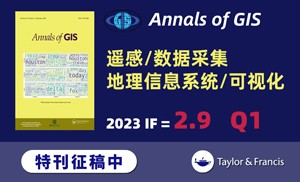Telecommunications Policy ( IF 5.9 ) Pub Date : 2022-02-07 , DOI: 10.1016/j.telpol.2022.102308 Frode Alfnes 1, 2 , Ole Christian Wasenden 1, 3
This paper explores how willing consumers are to share personal data to receive personalized offers on their mobile (cell in the US) phones using nationwide surveys of mobile users, 16–35 years old, in Norway, Serbia, Malaysia, and Pakistan. We ask respondents about the likelihood they would use three types of personalized advertising services delivered through their mobile operator, with services varying with respect to the level of personal data collected and whether shared with third parties. In all four countries, respondents state that their likelihood of using a personalized ad service decreases when the service uses more personal data or shares the data with third parties. Using a split sample design, we find that introducing a 10% discount on mobile subscriptions for those using the ad service increases the stated likelihood of using the service. We find significant differences in willingness to share personal data attitudes between countries, with respondents in high-income Norway being least willing and those in low-income Pakistan most willing to share personal data. We identify only minor differences between respondents in Serbia and Malaysia, middle-income countries in Europe and Asia. The study contributes to the literature on the willingness to share personal data by including young adult respondents from countries in both Europe and Asia. Furthermore, framing the survey questions in a mobile service context is appreciably closer to telecom reality than most existing experimental studies on sharing of personal data.
中文翻译:

您的隐私折扣?探索分享个人数据以获得个性化优惠的意愿
本文通过对挪威、塞尔维亚、马来西亚和巴基斯坦的 16-35 岁移动用户的全国性调查,探讨了消费者如何愿意共享个人数据以在其移动(美国为手机)手机上接收个性化优惠。我们询问受访者他们使用通过其移动运营商提供的三种个性化广告服务的可能性,这些服务在收集的个人数据水平以及是否与第三方共享方面各不相同。在所有四个国家/地区,受访者都表示,当服务使用更多个人数据或与第三方共享数据时,他们使用个性化广告服务的可能性会降低。使用拆分样本设计,我们发现,为使用广告服务的用户提供 10% 的移动订阅折扣会增加使用该服务的可能性。我们发现,各国在分享个人数据的意愿上存在显着差异,高收入挪威的受访者最不愿意分享个人数据,而低收入巴基斯坦的受访者最愿意分享个人数据。我们只发现塞尔维亚和马来西亚、欧洲和亚洲中等收入国家的受访者之间存在微小差异。该研究通过纳入来自欧洲和亚洲国家的年轻成年受访者,为有关分享个人数据意愿的文献做出了贡献。此外,与大多数现有的个人数据共享实验研究相比,在移动服务环境中构建调查问题明显更接近电信现实。我们发现,各国在分享个人数据的意愿上存在显着差异,高收入挪威的受访者最不愿意分享个人数据,而低收入巴基斯坦的受访者最愿意分享个人数据。我们只发现塞尔维亚和马来西亚、欧洲和亚洲中等收入国家的受访者之间存在微小差异。该研究通过纳入来自欧洲和亚洲国家的年轻成年受访者,为有关分享个人数据意愿的文献做出了贡献。此外,与大多数现有的个人数据共享实验研究相比,在移动服务环境中构建调查问题明显更接近电信现实。我们发现,各国在分享个人数据的意愿上存在显着差异,高收入挪威的受访者最不愿意分享个人数据,而低收入巴基斯坦的受访者最愿意分享个人数据。我们只发现塞尔维亚和马来西亚、欧洲和亚洲中等收入国家的受访者之间存在微小差异。该研究通过纳入来自欧洲和亚洲国家的年轻成年受访者,为有关分享个人数据意愿的文献做出了贡献。此外,与大多数现有的个人数据共享实验研究相比,在移动服务环境中构建调查问题明显更接近电信现实。高收入挪威的受访者最不愿意分享个人数据,而低收入巴基斯坦的受访者最愿意分享个人数据。我们只发现塞尔维亚和马来西亚、欧洲和亚洲中等收入国家的受访者之间存在微小差异。该研究通过纳入来自欧洲和亚洲国家的年轻成年受访者,为有关分享个人数据意愿的文献做出了贡献。此外,与大多数现有的个人数据共享实验研究相比,在移动服务环境中构建调查问题明显更接近电信现实。高收入挪威的受访者最不愿意分享个人数据,而低收入巴基斯坦的受访者最愿意分享个人数据。我们只发现塞尔维亚和马来西亚、欧洲和亚洲中等收入国家的受访者之间存在微小差异。该研究通过纳入来自欧洲和亚洲国家的年轻成年受访者,为有关分享个人数据意愿的文献做出了贡献。此外,与大多数现有的个人数据共享实验研究相比,在移动服务环境中构建调查问题明显更接近电信现实。该研究通过纳入来自欧洲和亚洲国家的年轻成年受访者,为有关分享个人数据意愿的文献做出了贡献。此外,与大多数现有的个人数据共享实验研究相比,在移动服务环境中构建调查问题明显更接近电信现实。该研究通过纳入来自欧洲和亚洲国家的年轻成年受访者,为有关分享个人数据意愿的文献做出了贡献。此外,与大多数现有的个人数据共享实验研究相比,在移动服务环境中构建调查问题明显更接近电信现实。









































 京公网安备 11010802027423号
京公网安备 11010802027423号